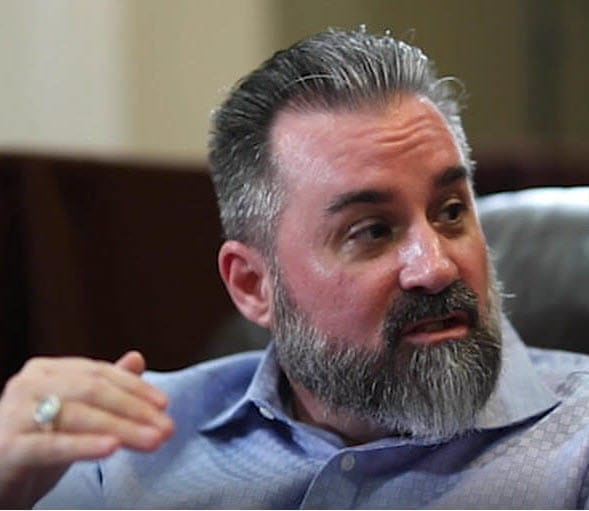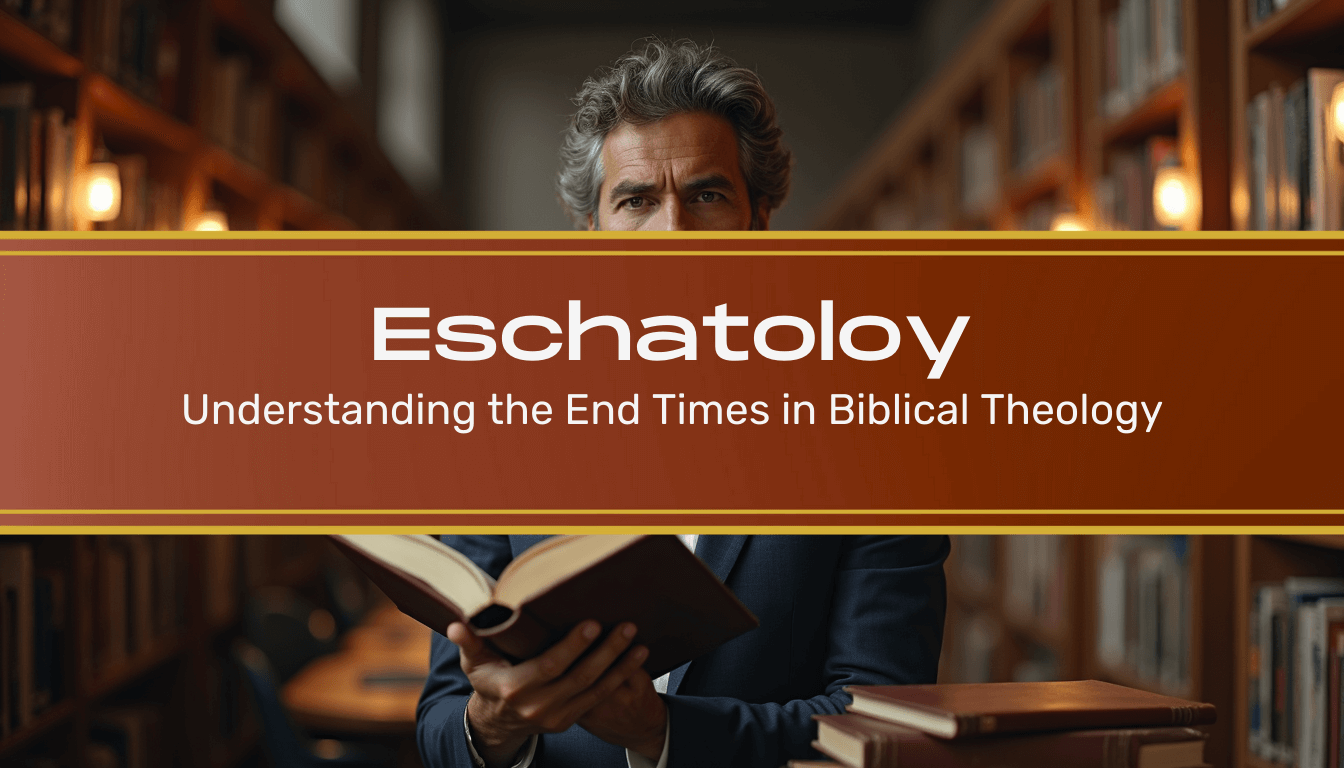
Moral Relativism vs Absolute Truth
A Biblical Perspective
When Truth Becomes a Matter of Opinion
We live in a culture where moral relativism vs. absolute truth isn't just a philosophical debate—it's a daily battleground. Turn on the news, scroll through social media, or have a conversation with your neighbor, and you'll quickly discover that what used to be considered universal truths are now treated as personal preferences.
"That's your truth, but it's not mine." "What's right for you isn't right for me." "Don't judge—everyone has their own path." Sound familiar? These phrases have become the rallying cries of a generation that's traded absolute truth for the comfort of moral relativism. But here's the problem: when truth becomes a matter of opinion, society loses its moral compass, and chaos inevitably follows.
As Christians, we're called to stand firm in the truth of God's Word, even when—especially when—the world around us rejects the very concept of absolute truth. This isn't about being narrow-minded or intolerant; it's about recognizing that truth, by its very nature, is exclusive. And that exclusivity isn't a bug in the system—it's a feature.
What Is Moral Relativism?
Moral relativism is the belief that ethical judgments are not universally valid but are instead relative to specific contexts—whether cultural, historical, or individual. In simpler terms, it's the idea that there's no such thing as absolute right or wrong; everything depends on your perspective, your culture, or your personal feelings.
This worldview has several key characteristics:
Subjectivity Over Objectivity: What's "right" is determined by personal feelings, cultural norms, or situational factors rather than universal principles.
Cultural Dependence: Moral standards vary from society to society, and no culture has the right to judge another's practices.
Situational Ethics: The same action can be right in one context and wrong in another, depending on the circumstances.
Rejection of Universal Standards: There are no moral absolutes that apply to all people, in all places, at all times.
You see moral relativism everywhere in our culture. It's the foundation of phrases like "live your truth" and "follow your heart." It's the philosophy behind the idea that all religions are equally valid paths to God. It's the reasoning used to justify everything from sexual immorality to political corruption—as long as it feels right to the person doing it.
Sharp Edge: Moral relativism is like GPS without satellites. Sure, you can still drive around, but don't expect to end up where you intended to go. And definitely don't expect anyone else to be able to follow your directions.
But here's where moral relativism gets interesting—and by interesting, I mean completely self-defeating. Relativists claim that there are no absolute truths, but they make this claim as if it were absolutely true. They say we shouldn't judge others, but they judge anyone who believes in absolute truth as intolerant. They argue that all viewpoints are equally valid, except for the viewpoint that some viewpoints are more valid than others.
The internal contradictions of moral relativism are so obvious that it's almost embarrassing to point them out. Almost.
The Consequences of Moral Relativism
When a society embraces moral relativism, the results are predictable and devastating. Without a shared foundation of truth, several things inevitably happen:
The Collapse of Accountability
If there are no universal moral standards, then there's no higher authority to hold people accountable for their actions. Everyone becomes their own moral authority, which means no one is truly accountable to anyone. This leads to a culture where people do whatever they can get away with, as long as they can justify it to themselves.
The Erosion of Justice
Justice requires a standard of right and wrong that transcends personal opinion. Without absolute truth, concepts like fairness, equality, and human rights lose their foundation. How can you argue for justice if there's no universal standard of what's just?
Moral Confusion and Inconsistency
When truth is relative, moral reasoning becomes impossible. The same action can be simultaneously right and wrong, depending on who's doing the judging. This creates a culture of moral confusion where people are paralyzed by uncertainty or, worse, where they simply give up trying to make moral distinctions altogether.
The Rise of Might Makes Right
In the absence of absolute truth, power becomes the ultimate arbiter of morality. Whoever has the most influence, the loudest voice, or the biggest platform gets to decide what's right and wrong—at least until someone more powerful comes along.
We're seeing all of these consequences play out in real time. Cancel culture is what happens when moral relativism meets social media—a mob of people who claim there are no absolute truths suddenly become very absolute about destroying anyone who disagrees with them. Political corruption flourishes when leaders believe they can define their own moral standards. Social justice movements lose their moral authority when they reject the very concept of absolute truth that gives their cause legitimacy.
What Is Absolute Truth?
Absolute truth is the belief that truth exists independently of what anyone thinks, feels, or believes about it. It's objective, universal, and unchanging. Absolute truth doesn't care about your feelings, your culture, or your personal preferences—it simply is.
From a Biblical perspective, absolute truth has several key characteristics:
Objectivity: Truth exists independently of human opinion or belief.
Universality: Truth applies to all people, in all places, at all times.
Immutability: Truth doesn't change based on circumstances, culture, or personal preference.
Exclusivity: If something is true, then its opposite cannot also be true.
The Bible makes it clear that absolute truth exists and that it's rooted in the character and Word of God:
Jesus as Truth: "I am the way and the truth and the life. No one comes to the Father except through me" (John 14:6). Jesus doesn't just teach truth—He is truth.
Scripture as Truth: "Sanctify them by the truth; your word is truth" (John 17:17). God's Word is the ultimate standard of truth.
God's Character as Truth: "God is not human, that he should lie, not a human being, that he should change his mind" (Numbers 23:19). Truth is grounded in God's unchanging nature.
The Eternal Nature of Truth: "Your word, Lord, is eternal; it stands firm in the heavens" (Psalm 119:89). Truth doesn't evolve or become outdated.
This doesn't mean that our understanding of truth is perfect or complete. We see through a glass darkly (1 Corinthians 13:12), and our finite minds can't fully comprehend infinite truth. But it does mean that truth exists independently of our understanding of it, and we can know it truly, even if not exhaustively.
Sharp Edge: Saying "that's just your interpretation" is the intellectual equivalent of taking your ball and going home. It's what people say when they can't refute the argument but don't want to accept the conclusion.
The Biblical Case for Absolute Truth
The Bible doesn't just assume absolute truth exists—it makes a compelling case for it. Throughout Scripture, we see evidence that truth is objective, universal, and grounded in God's character.
The Nature of God
God's character provides the foundation for absolute truth. He is described as:
Holy: "Holy, holy, holy is the Lord Almighty; the whole earth is full of his glory" (Isaiah 6:3). God's holiness establishes the standard for moral purity.
Just: "He is the Rock, his works are perfect, and all his ways are just. A faithful God who does no wrong, upright and just is he" (Deuteronomy 32:4). God's justice provides the standard for fairness and righteousness.
Unchanging: "I the Lord do not change" (Malachi 3:6). God's immutable nature means that truth doesn't shift with the times.
The Consistency of Scripture
Despite being written over 1,500 years by more than 40 different authors, the Bible maintains remarkable consistency in its moral teachings. The principles taught in Genesis are reinforced in Revelation. The moral standards established in the Old Testament are fulfilled and clarified in the New Testament. This consistency points to a single, unchanging source of truth.
The Universal Application of Biblical Principles
Biblical moral principles transcend cultural and historical boundaries. The Ten Commandments weren't just for ancient Israel—they provide universal principles for human flourishing. Jesus' teachings about love, forgiveness, and sacrifice apply to all people, in all cultures, at all times.
The Exclusivity of Truth Claims
Jesus made exclusive truth claims that cannot be reconciled with relativism: "I am the way and the truth and the life. No one comes to the Father except through me" (John 14:6). This isn't one truth among many—it's the truth that excludes all alternatives.
The Moral Law Written on Hearts
Romans 2:14-15 tells us that even those who don't have God's written law have the moral law written on their hearts. This universal moral consciousness points to an objective standard of right and wrong that transcends cultural differences.
How Moral Relativism Undermines Society
The practical consequences of moral relativism extend far beyond philosophical debates. When a society abandons absolute truth, it undermines the very foundations that make civilization possible.
The Breakdown of Social Cohesion
Shared moral values are the glue that holds societies together. When everyone becomes their own moral authority, social cohesion breaks down. We see this happening in real time as our culture becomes increasingly polarized and fragmented.
The Impossibility of Education
Education assumes that some ideas are better than others—that knowledge is preferable to ignorance, that truth is better than falsehood. But if all viewpoints are equally valid, then education becomes impossible. Why teach children anything if their uninformed opinions are just as valid as expert knowledge?
The Collapse of Meaningful Dialogue
Productive dialogue requires a shared commitment to truth. When people retreat into their own subjective realities, meaningful conversation becomes impossible. We end up with echo chambers and safe spaces instead of robust debate and intellectual growth.
The Erosion of Human Rights
The concept of universal human rights depends on the belief that all humans have inherent dignity and worth. But this belief only makes sense if it's objectively true, not just a cultural preference. Moral relativism undermines the very foundation of human rights by making them culturally relative rather than universally binding.
Living in Truth in a Relativistic Culture
So how do we live as people committed to absolute truth in a culture that has embraced moral relativism? It's not easy, but it's not impossible either.
Stand Firm in Scripture
Our commitment to absolute truth must be grounded in God's Word, not in cultural trends or personal preferences. This means regular Bible study, prayer, and a willingness to let Scripture shape our worldview rather than the other way around.
Speak Truth with Love
Ephesians 4:15 calls us to speak "the truth in love." This means we don't compromise on truth, but we also don't use truth as a weapon to beat people over the head. We speak truth because we love people, not because we want to win arguments.
Live Consistently
The best argument for absolute truth is a life lived in accordance with it. When people see the peace, joy, and purpose that come from living according to God's truth, they're more likely to be open to hearing about it.
Engage Thoughtfully
We need to be able to articulate why we believe in absolute truth and why it matters. This means understanding the philosophical and practical problems with moral relativism and being able to explain them clearly and winsomely.
Show Grace
Remember that we're all sinners saved by grace. We don't believe in absolute truth because we're better than anyone else—we believe in it because we recognize our need for an objective standard outside ourselves.
Sharp Edge: The same people who say "don't judge" will judge you for believing in absolute truth. The irony is so thick you could cut it with a knife—if they believed in knives, which they probably think are just social constructs anyway.
The Cultural Battleground
The battle between moral relativism and absolute truth isn't just happening in philosophy classrooms—it's playing out in every area of our culture.
In Education
Our schools have largely abandoned the idea of objective truth in favor of subjective experience. Students are taught that all cultures are equally valid, that there are no wrong answers (only different perspectives), and that feelings matter more than facts. The result is a generation that's intellectually confused and morally adrift.
In Politics
Political discourse has devolved into competing narratives rather than debates about objective reality. Politicians don't argue about what's true—they argue about whose truth should prevail. The result is a political system that's more concerned with power than with justice.
In Entertainment
Movies, TV shows, and music increasingly promote the idea that there are no moral absolutes—that right and wrong are just matters of perspective. Heroes are morally ambiguous, villains have sympathetic backstories, and the message is that everyone is just doing their best in a morally complex world.
In Religion
Even within Christianity, there's pressure to soften the exclusive claims of the Gospel in favor of a more inclusive, relativistic approach. The result is a watered-down faith that offers comfort but not transformation.
The Hope of Absolute Truth
Despite the challenges, there's reason for hope. Absolute truth isn't just a philosophical position—it's a person. Jesus Christ is the truth, and He has promised that the truth will set us free (John 8:32).
When we ground our lives in absolute truth, we experience:
Freedom from Confusion: We don't have to wonder what's right or wrong—God's Word provides clear guidance.
Peace in Uncertainty: Even when circumstances are chaotic, we can rest in the unchanging truth of God's character and promises.
Purpose in Life: We're not just making up our own meaning—we're participating in God's eternal purposes.
Hope for the Future: We know that truth will ultimately prevail because God is sovereign over history.
We don't sidestep hard topics here. We face them head-on. So start by exploring our category pages - they're practical built to help you think more biblically. You should find them very informative and useful. If you agree, then feel free to drill down into the articles within each category. Take your time. If you do, you'll learn a lot and be better equipped to live more like Christ.
Category Articles Include:
How to engage arts, politics, and public life without compromising a Biblical witness.
How to Develop a Biblical Worldview
A practical framework for forming a worldview grounded in Scripture and lived in community.
Put This Into Practice
Read each article in this category in order and note one truth and one action step from each.
Memorize one anchor verse for this category (e.g., John 14:6) and pray it daily this week.
Write a 3–5 sentence summary of how absolute truth challenges one area where you've been influenced by relativistic thinking.
Conclusion
The battle between moral relativism and absolute truth isn't just an academic exercise—it's a fight for the soul of our culture. When we abandon absolute truth, we don't gain freedom; we lose our way. We don't become more tolerant; we become more confused. We don't create a better world; we create a world where might makes right and truth becomes whatever the loudest voice says it is.
But there's hope. Truth isn't just an idea—it's a person. Jesus Christ is the way, the truth, and the life, and He offers us something that moral relativism never can: a solid foundation for living, a clear standard for morality, and the promise that truth will ultimately prevail.
The question isn't whether absolute truth exists—it does. The question is whether we'll have the courage to embrace it, live by it, and share it with a world that desperately needs it.

Chris Daniel, just a servant of Christ calling others to be ready. Like the Bereans, I try to examine Scripture daily to see if what I hear is true. If you're struggling to live as we're called, you're still in the fight. Don't give up.
Category 2 - Christian Apologetics

Category 3 - Bible Study

Category 4 - Theology


"Most middle-class Americans tend to worship their work, work at their play, and play at their worship. As a result, their meanings and values are distorted. Their relationships disintegrate faster than they can keep them in repair. Their lifestyles resembles a cast of characters in search of a plot." - Gordon Dahl
"The Bible is a reliable collection of historical documents written down by eyewitnesses during the lifetime of other eyewitnesses that report supernatural events that took place in fulfillment of specific prophecies and claimed their writings were divine rather than human in origin."
- Dr. Voddie Baucham on 2 Peter 1





